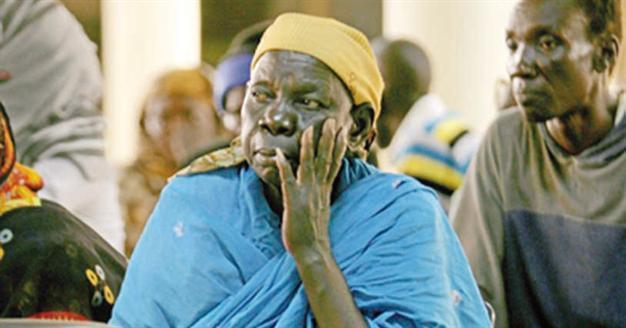High inflation rate bites Sudanese
KHARTOUM - Agence France-Presse

A Southern Sudanese woman sits waiting in the departure lounge of Khartoum’s International airport.
Sudan’s economy is reeling, hit by soaring inflation and a rapidly depreciating currency, following the loss of three-quarters of Khartoum’s vital oil revenues when South Sudan seceded last July.Since then, costly armed conflict on its southern border, which resulted in extensive damage to infrastructure at Heglig, Sudan’s main oil field, in April, has accelerated this trend, with the government desperately searching for solutions.
In a report late last month, the International Monetary Fund described the economic challenges the country faces as “daunting.”
Inflation officially hit 30.4 percent in May, compared with 28.6 percent in April, the central statistics bureau said last week, although some economists say the real figure could be more than 40 percent.
Traders say the price of beef has more than doubled over the past 12 months, from around 15 Sudanese pounds ($2.7) last year to as much as 35 Sudanese pounds ($6.4) now.
One plate of “fool”, or stewed fava beans, a poor man’s fare in Sudan and across Arab countries, has gone up over the same period from two Sudanese pounds to four or five now.
But the high prices hitting families in Sudan are set to jump if, as widely expected, the government follows through on a decision it has been mulling for weeks, namely to lift fuel subsidies which it can no longer afford.
Shopping in a market in Khartoum, Sabir Jumaa, 50, says he has already cut back on what he buys for his family, including meat.
“But there are some things we cannot avoid paying for, like medicine for the children and school expenses. If the government removes fuel subsidies we will be in a critical position,” the private company employee added.
Economists and some within the ruling National Congress Party itself warn of the consequences of such a move, especially for Sudan’s burgeoning poor.
















